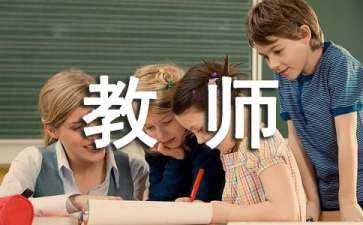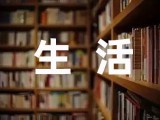8b unit 1 past and presentwelcome to the unit班级______________ 姓名______________ 学号______________【教学目标】1. 识记北京不同时代的交通工具。2. 通过观察时间表并排列信息,复习现在完成时这一语法概念。3. 理解反义词。掌握基本的形容词反义前缀。4. 在语境中使用恰当的形容词表达肯定和否定的意思。【教学内容】1. 四会内容词汇:past n. present n. since prep. & conj. unhealthy adj. unlucky adj. unpleasant adj.词组:not…any more play with句型:eddie, have you seen my food? i’ve just eaten it.2. 三会内容 词汇:transport n. times n. double-decker n. light rail n. opposite n.教师评价 家长签字
【旧知回顾】一、用所给单词的适当形式填空。1. she __________ (study) english since she was ten. she __________ (begin) to study english when she was ten.2. we __________ (not finish) our homework yet. will you wait a minute?3. it __________ (rain) for a long time, and everything feels wet.4. ________ your father ever ________ (travel) by plane?5. my father __________ (be) to paris twice. he __________ (go) there again next month.6. we __________ (meet) him yesterday, and we __________ (meet) him before.7. i __________ (see) the film already. i __________ (see) it the day before yesterday.8. jim isn’t here. he __________ (go) to the library. he __________ (go) there an hour ago.9. ________ you ________ (find) my pen yet? it __________ (be) around here a minute ago.10. ---________ you ________ (have) breakfast yet? ---yes, i have. ---when ________ you ________ (have) it? ---just now.
二、用所给的时间副词填空。already yet just ever never since for recently1. i have been in this city ________ nearly two years.2. he has ________ done his homework. now he can have a rest.3. ---did you see our teacher just now? ---yes, she has ________ gone to the office.4. ---have you ________ been to hainan island? ---no, i have ________ been there before.5. he has had a cold ________ he came here.6. i haven’t heard from my friends ________.7. simon has lived here ________ last year.8. ---have you finished your homework ________? ---yes, i have. i have ________ finished it.【课前预(请记得收藏本站-一路高升范文网,以获取更多新鲜内容)习】 一、在课文中划出下列短语并翻译。1. have you seen my food?_________________ 2. i’ve just eaten it.___________________3. you’ve changed._______________________ 4. over the past 100 years_______________5. do a history project on the changes in beijing 6. i don’t want to play with you any more. ____________________________________ __________________________________7. transport at different times_______________ 8. back to the past_____________________9. have an interview with sb._______________ 10. tell me a lot about his past___________11. be lonely from time to time_____________ 12. as often as before___________________13. he is lucky enough to see the changes to sunshine town.____________________________
二、写出下列形容词的反义词。 cheap__________happy__________correct__________honest__________easy__________long__________kind__________polite__________fast__________hot__________pleasant__________possible__________new__________same__________lucky__________healthy__________
三、语法小贴士。1.ago和before的区别1) ago为副词,意为“以前”。“一段时间 + ago”,常用于一般过去时。e.g. 两天前我去拜访他,但是现在他已经去了上海。i ________ him two days ________, but now he ________ ________ to shanghai.2) before作副词,可单独使用,常与现在完成时或过去时连用。ago则不能单独使用。e.g. 我以前从未见过他。 i ________ never ________ him ________.3) before作介词,后接某点时间;作连词,引导时间状语从句。ago不能作介词和连词。e.g. 他会在5点钟以前回来。 he will be back ________ five o’clock.我离家前将给你打电话。 i’ll ring you up ________ i leave home.2.time的用法1) time意为“时间”,作不可数名词。e.g. 青少年们不应该浪费时间。 teenagers shouldn't waste ________.2) time意为“时代”,“时期”,作可数名词。e.g. 看看在不同时代的交通工具。 look at the transport at different ________.3) time意为“次”,“回”,作可数名词。e.g. 我已经告诉你几次了。 i have told you about it several ________.【教学过程】step 1. lead-inhave a discussion. ask and answer some questions.step 2. presentationpresent the pictures of the transport at different times. teach their names.finish part a & b on p 7.step 3. practice(请记得收藏本站-一路高升范文网,以获取更多新鲜内容)make a dialogue like this.a: when did people begin to use buses in beijing?b: people began to use them in 1935. buses have been in use since 1935.step 4. comic striplisten, read and answer. act out the dialogue. step 5. vocabularyremember the opposites. finish the exercises on page 12.【巩固练习】一、根据中文或首字母提示,完成单词。1. my cousin millie is working in the usa at p__________.2. there are different forms of t__________ at different times.3. the plane is much faster than the l__________ r__________.4. his son didn't study hard in the p__________.5. great changes have taken place __________ (自从) 1949 in zhenjiang.6. we had an __________ (采访) with our maths teacher yesterday afternoon.7. it’s an __________ (不愉快的) trip. i felt sick most of the way.8. sometimes mr. dong feels l__________ because he misses his old friends.
二、用所给单词的适当形式填空。1. ---mum, ________ you ________ (see) my sandwiches? ---yes, i’ve just ________ (eat) it. 2. great ________ (change) have taken place in this city.3. oh, where is my teddy bear? it ________ (be) on the desk half an hour ago.4. in the past i ________ (be) very lazy. but now i ________ (change).5. our teacher told us the earth ________ (go) around the sun.6. he ________ (teach) here since he ________ (come) to this school.7. it’s ________ (polite) to shout to the old man.8. don't worry. the teacher won’t get angry even if you give an ________ (correct) answer.9. many people in the west think 13 is an ________ (lucky) number.10. stop eating ________ (healthy) food, and you will be slimmer.11. he is sometimes too ________ (careful) in exams and gets very few points.12. he is a ________ (honest) man. nobody believes in him in the office.
三、单项选择。( ) 1. many people ______ light rails to work in(请记得收藏本站-一路高升范文网,以获取更多新鲜内容) changchun now. a. by b. takes c. taked. use ( ) 2. mary doesn’t want to ______ tom. he’s too young. a. playb. play atc. play withd. play in ( ) 3. ---do you still have a toothache, jim? ---no, it has ______. i’m all right now, mum. a. dropped b. polluted c. goned. protected ( ) 4. her mother ______ for two years. a. has diedb. diedc. has been diedd. has been dead ( ) 5. ---have you ever been anywhere for a trip? ---a trip? i ______ away from my hometown even once. a. went b. have gone c. have never beend. have been ( ) 6. they ______ each other for at least two months. a. have seen b. didn’t see c. haven’t seend. haven’t been seen ( ) 7. ---your french is so good. how long have you been in france? ---______ i was five. a. until b. since c. whend. before ( ) 8. ---have you returned the book to the library ______? ---yes, i have ______ returned it. a. yet; yet b. already; yet c. yet; alreadyd. already; already ( ) 9. what is the weather like this summer? ---there ______ very little rain. a. has b. has been c. ared. have been ( ) 10. ---where is tom? ---he ______ home. a. has been b. has gone c. has been tod. has gone to
四、完形填空。changes to shenzhenthis is century hotel. it is one of shenzhen’s newest hotels and was finished just several weeks ago. over the past twenty years, the biggest change in shenzhen has been the increasing __1__ of the city’s buildings. before 1980, shenzhen was only a small fishing village __2__no high buildings. now great changes have taken place there. shenzhen has many high buildings all over the city.look, there is a new train station. it is much __3__ now. before 1980, people in shenzhen could only __4__ the bus or train __5__ they wanted to leave the city. now there are many more buses to take people to every part of the city, and they can __6__ from the city’s airport to any place. there are more parks, museums and places for people to __7__ sport, music and art. the city government has built more roads. in shenzhen, most people are not __8__ bicycles. almost every family __9__ a car. people in shenzhen __10__ a happy life now. ( ) 1. a. cleaning( ) 2. a. with( ) 3. a. cleaner( ) 4. a. take( ) 5. a. after( ) 6. a. fly( ) 7. a. like( ) 8. a. repairing( ) 9. a. has used( ) 10. a. are living b. length b. without b. newer b. buy b. before b. walk b. love b. using b. has borrowed (请记得收藏本站-一路高升范文网,以获取更多新鲜内容) b. are holding c. height c. for c. smaller c. clean c. if c. run c. see c. riding c. has bought c. are cleaningd. beautyd. aboutd. biggerd. payd. thoughd. drived. enjoyd. cleaningd. has maded. are growing
推荐站内搜索:辽宁自考成绩查询、河北省会计考试题库、输入学生考号查询成绩、教务管理系统登录入口、清明节周记300字、省公务员考试报名时间、广东学位英语成绩查询、会计基础考试题库、广西机电职业技术学院录取分数线、北京成人高考分数线、


 8B Unit1 Welcome to the unit导学案
8B Unit1 Welcome to the unit导学案



